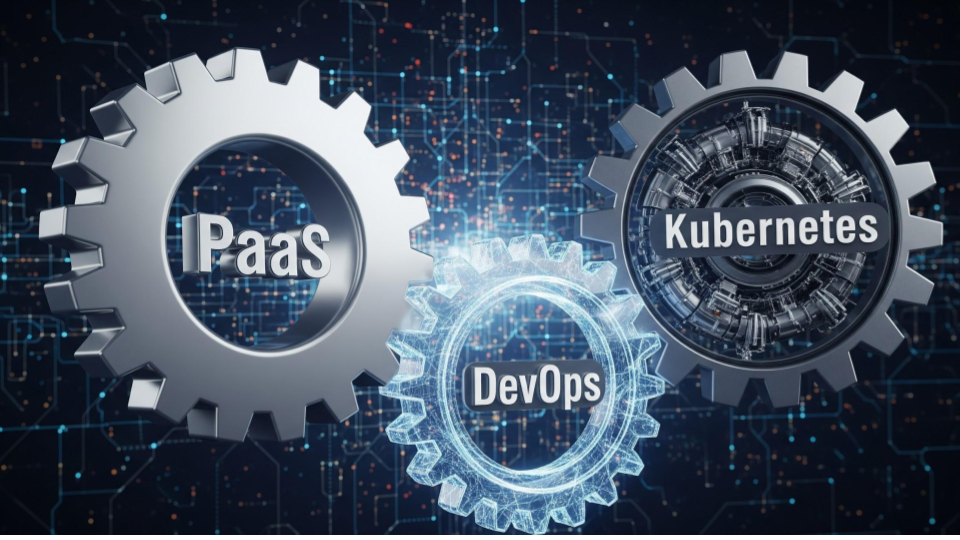Why PAAS cannot replace Kubernetes

Time and again we see Kubernetes haters crying out - Kubernetes is dead. Everyone's moving to PAAS.
Then they come up with some fancy stories of how companies x and y moved to PAAS and killed their Kubernetes clusters.
But they don't get the reality.
PAAS can replace Kubernetes for specific use cases. But PAAS cannot replace every Kubernetes use case. Where PAAS excel it will. Where PAAS cannot fit in, it won't.
PAAS is incredibly powerful where it excels. But that does not prove PaaS can replace Kubernetes everywhere. Let's break down why.
What Exactly is PaaS? 🚀
Imagine you're building a house. With traditional infrastructure, you'd buy the land, dig the foundations, pour concrete, and build every wall yourself. With Infrastructure as a Service (IaaS), someone provides the land and perhaps the basic utilities.
Platform as a Service (PaaS) goes a significant step further. It provides you with a fully-equipped, ready-to-use apartment where the landlord handles all the plumbing, electricity, security, and maintenance. You just move in your furniture (your application code) and start living (running your app).
Key characteristics of PaaS include:
- Abstraction of Infrastructure: Developers don't see or manage servers, operating systems, or networking.
- Integrated Tooling: Often comes with built-in features for deployment, scaling, monitoring, and database integration.
- Focus on Code: Allows development teams to concentrate purely on writing application logic, accelerating development cycles.
- Automatic Scaling & Management: Handles scaling applications up or down based on demand, patching, and other operational tasks.
Popular examples include Heroku, Google App Engine, AWS Elastic Beanstalk, and Azure App Service.
PaaS vs. Kubernetes: A tale of two abstractions 🛠️
Here's where the common confusion arises. Both PaaS and Kubernetes aim to simplify application deployment, but they operate at fundamentally different levels of abstraction.
Kubernetes is an open-source container orchestration platform. It's the engine that lets you manage hundreds or thousands of containers (your individual application components) across a cluster of machines. Think of it as a highly sophisticated robot chef that can manage many sous-chefs (containers), assigning tasks, ensuring they have ingredients, and restarting them if they fail.
| Feature | PaaS | Kubernetes (K8s) |
|---|---|---|
| Abstraction | High (Application-centric) | Medium (Container-centric) |
| Focus | Developer productivity, rapid deployment | Container orchestration, infrastructure flexibility |
| Control | Limited (Provider manages platform) | High (You configure every aspect of your containers) |
| Flexibility | Opinionated, easier for standard apps | Unopinionated, highly customizable |
| Learning Curve | Low to Moderate | Steep |
| Underlying Tech | Often uses Kubernetes or other orchestrators | Is the orchestrator |
The key takeaway: Many modern PaaS offerings are actually built on top of Kubernetes.
PaaS can leverage Kubernetes' power for scaling, self-healing, and resource management, while adding an extra layer of abstraction and managed services to make it even easier for developers. You could build your own PaaS-like experience on Kubernetes, but that requires significant effort and expertise.
Limitations and challenges of PaaS: Why one size doesn't fit all 🚧
While the convenience of PaaS is undeniable, it comes with certain limitations that prevent it from being a universal solution:
- Vendor Lock-in: This is a significant concern, especially for businesses prioritizing on long-term flexibility. Migrating an application built on a specific PaaS to another provider or an on-premise solution can be complex, time-consuming, and costly due to proprietary APIs, services, and data formats.
- Lack of Granular Control: The high level of abstraction means less control over the underlying infrastructure and runtime environment. For applications with very specific performance requirements, custom network configurations, or specialized security needs, PaaS might be too restrictive.
- Cost Escalation: While initial setup can be cheap, costs can quickly escalate as applications scale, especially with resource consumption-based pricing models. For large-scale deployments or those with unpredictable traffic patterns, managing PaaS costs effectively can be a challenge.
- Limited Customization for Complex Workloads: PaaS platforms excel at standard web applications, APIs, and microservices. However, for highly specialized applications like real-time data processing engines, custom machine learning pipelines, or certain legacy applications requiring specific OS-level access, PaaS might not offer the necessary flexibility.
- Debugging & Troubleshooting: The "black box" nature of PaaS can make it difficult to debug complex issues that might stem from the underlying platform rather than your application code.
PaaS: just another platform for running apps 🎯
Ultimately, PaaS is a powerful tool in the modern developer's arsenal. It's an excellent choice for:
- Startups and SMEs looking for rapid deployment without extensive infrastructure teams.
- Projects with tight deadlines where speed to market is paramount.
- Standard web applications and stateless microservices.
Those who can leverage its benefits for their specific use cases will and should use it. It democratizes access to robust infrastructure and streamlines operations.
However, for organizations that require:
- Deep control and customization over their infrastructure.
- Multi-cloud or hybrid-cloud strategies to avoid vendor lock-in.
- Highly complex, specialized, or regulated workloads.
- Building their own internal platforms for unique requirements.
...then Kubernetes, often combined with a strong DevOps culture, will remain the platform of choice. They will continue to run their applications on Kubernetes, assembling the specific tools and services that best fit their needs, much like a master chef meticulously selecting ingredients and perfecting techniques in their custom-built kitchen.
Tip for aspiring DevOps engineers
When someone says PAAS is going to kill Kubernetes, it's just their personal opinion. It's not the opinion of thousands of DevOps teams out there.
Many software teams are relying on Kubernetes to deliver their software reliably to customers.
So, keep sharpening your Kubernetes skills. Kubernetes is here to stay.

